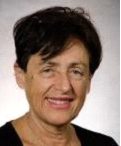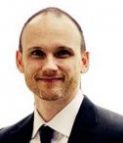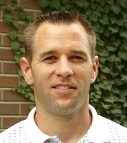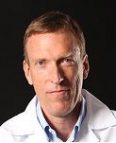Researchers in kinesiology and health sciences will share their expertise on topics relating to muscle health at York University on Friday, May 25 during the ninth annual Muscle Health Awareness Day (MHAD9).
The event, hosted by the Faculty of Health’s Muscle Health Research Centre (MHRC), features guest speakers from York University and other North American universities, as well as poster presentations from undergraduates, masters and PhD students and post-doctoral fellows.
MHAD9 takes place in the Life Sciences Building, rooms 101 and 103, and runs from 8:15am to 4pm.
This year features an impressive roster of guest speakers, including:
Christopher Ellis is a professor and graduate chair in the Department of Medical Biophysics at the University of Western. He research in systems biology, bioengineering and computing in mathematics, natural science, engineering and medicine. His research examines oxygen saturation dependent regulation of microvascular oxygen supply by erythocytes.
Tessa Gordon is a scientist at the Hospital for Sick Children. Her research aims to promote functional recovery after peripheral nerve injuries. She specifically examines nerve regeneration and the mechanisms that underlie poor axon regeneration, and she explores strategies to overcome the time-dependent decline in regenerative capacity of motor and sensory neurons.
Tara Haas is professor in the School of Kinesiology and Health Science at York University. Her research focuses on the molecular control of blood vessel growth (angiogenesis) in skeletal muscle and adipose tissue. Furthermore, she examines these mechanisms in the context of exercise, peripheral artery disease, and obesity/diabetes.
Audrey Hicks is a professor in the Kinesiology Department at McMaster University, and is an associate chair of the undergraduate program. Her research examines the health and rehabilitative benefits of engaging in regular exercise. Furthermore, Hicks works to develop best practice physical activity guidelines for special populations.
- Christopher Ellis
- Tessa Gordon
- Tara Haas
- Audrey Hicks
Keir Menzies is an assistant professor in the Interdisciplinary School of Health Sciences. His research examines new metabolic signaling pathways to help identify and develop translational treatment strategies for aging and neuromuscular diseases. He explores signaling networks that control mitochondrial function in muscle and other important organs affecting whole body metabolism.
Daniel Moore is an assistant professor in the Faculty of Kinesiology and Physical Education at the University of Toronto. His research focuses on the interplay between exercise and nutrition across different population groups. He has previously studied the effects of different nutrients on aging muscle as well as how they help young adults’ muscles recover after exercise.
Charles Thornton is a professor of neurology at the University of Rochester School of Medicine and Dentistry. His research focuses on myotonic dystrophy, repeat expansion diseases, and therapeutic development for neuromuscular disorders.
Bobby Yanagawa is an assistant professor in the Department of Medicine at the University of Toronto, and a surgeon in the Division of Cardiovascular Surgery at St. Michael’s Hospital. His research focuses on basic, translational, and clinical studies of ischemic and valvular heart disease, and cardiac arrhythmias.
- Kier Menzies
- Daniel Moore
- Charles Thornton
- Bobby Yanagawa
More details, including the event agenda and the list of speaker sessions and registration forms, are available online.










